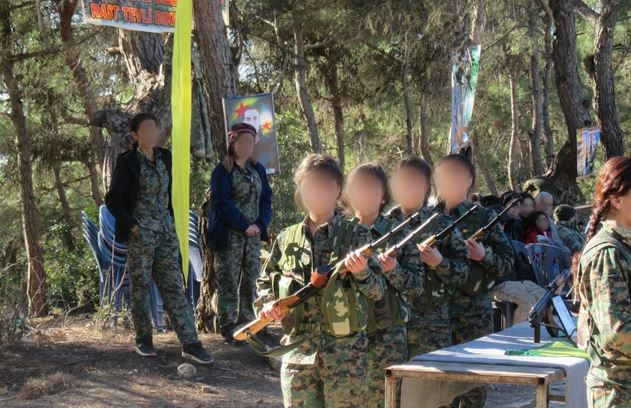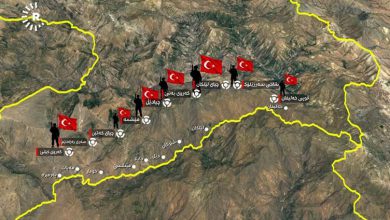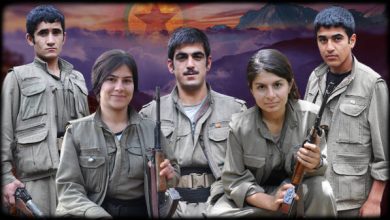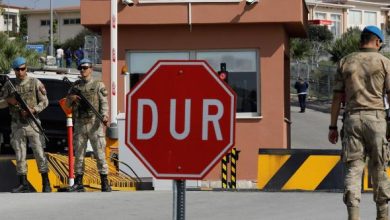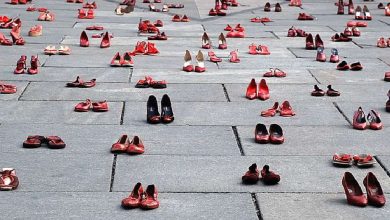Denial of Children’s access to humanitarian aid by PJAK.
It was mentioned in the previous reports of the Iranian Kurdistan Human Rights Watch (IKHRW) on various crimes against children, that the United Nations Security Council, by establishing the “Special Representative on Children and Armed Conflicts” in 1996, officially addressed the issue of the presence of children in war and internal and international armed conflicts.
At the United Nations General Assembly, collecting information on children’s injuries in war, raising awareness and strengthening international cooperation was to protect them.
In 1999, the first resolution on children and armed conflicts was adopted by the United Nations Security Council, thus placed the issue of war-affected children on the agenda of this council. The resolution also identified six serious violations that had affected a large number of children during the war and called on the Secretary-General to report on the matter. Ending and preventing these six serious violations is the focus and duties of the special representative.
The Six Grave Violations that are basis of collecting information and reporting violations that affect children:
- Killing and maiming of children;
- Recruitment or use of children as soldiers;
- Sexual violence against children;
- Abduction of children;
- Attacks against schools or hospitals;
- Denial of humanitarian access for children.
The denial of Children’s access to humanitarian aid will be mentioned in this short note. Seizing food and vital goods and also denying access to health and medical treatment by these militias is not a new phenomenon. Throughout history, starvation has been used as a method of warfare. The main purpose of the sieges was not to inflict pain and suffering on the civilian population, but was to surrender the enemy army. However, in modern wars, denying access to humanitarian aid is increasingly rejected as part of a deliberate policy of targeting civilians, especially during internal armed conflicts. But unfortunately, humanitarian aid is often used as a bargaining chip in political deals, and we regularly see disruptions of providing these aids. Because international media pays more attention to this issue, the denial of aid has also become more apparent. Access to humanitarian aid is critical in armed conflict where civilians, including children, are in desperate need of help.
Denial of humanitarian aid involves preventing free passage or timely delivery of humanitarian aid to people in need, as well as deliberate attacks against the staff of various humanitarian organizations.
Prohibition under international law
Denial humanitarian aid to civilians, including children, and attacking humanitarian workers assisting children; according to the Fourth Geneva Convention and its additional protocols, it is prohibited and may be a crime against humanity and a war crime. Furthermore, it is a principle of customary international law. Denial of humanitarian aid to civilians trapped or displaced by conflict, has always been a reality, but now it is increasingly being used as a war tactic. There are many examples of trapped children in besieged areas or those denied access to food, water and medical assistance, such as vaccines. The agreement of aid to population, including children, should not be rejected by the parties of conflict for arbitrary reasons, and each party cannot deliberately obstruct the delivery of auxiliary equipment to in-need civilians in their controlled areas. The Council, the General Assembly and the Human Rights Council have repeatedly condemned such actions. Denial of humanitarian aid to children may also violate several basic human rights, including the right to survival and freedom from hunger, which are basic rights of all people. In relief operations, children deserve special attention and need care and aid.
In 2020, the UN reported more than 4,100 cases of denial of access to humanitarian aid for children by parties of conflict, governments and armed non-state groups. Incidents include attacks on aid workers, bureaucratic and administrative obstacles, suspension or diversion of aid, and interference with decisions. Not all forms of denial of humanitarian aid violate international law, but all of them hamper humanitarian operations and, in many cases, have a devastating effect on the survival of children caught in armed conflicts.
What is humanitarian aid?
Humanitarian aid includes all emergency measures to ensure the survival of the affected by international or internal armed conflicts. These aids include food, water, clothing, medicine, fuel, shelter, proper bed, hospital equipment, etc. The only purpose of aid should be preventing and reducing human suffering. Beneficiaries of humanitarian aid are civilians in need, such as prisoners and captives of war.
Why does PJAK violate children’s rights?
The armed and militant group PJAK has been repeatedly accused of using children as soldiers by various regional and international institutions. The children in this group, often under the legal age, have either been kidnapped or tricked and are now forced to remain members of this armed group. Regardless of the fact that these children are practically deprived of basic human rights such as housing, water, education and healthy food, and being in the impassable mountains, they are practically at risk of gradual death. PJAK has repeatedly prevented the humanitarian organizations and aid to children. These children have been the target of numerous attacks and have died due to S lack of proper services and PJAK policies. The date of death, the place of burial and the exact cause of their death are not known. PJAK announces these news with a long delay so that it is not possible for the family and human rights institutions to follow up. The authenticity of the news is also highly questioned; because they do not provide the possibility of verifying the authenticity of the news. The burial place of the members, the cause of death and the time are not clear. This also brings PJAK’s policy closer to enforced disappearance, which is an international crime. In fact, children are disadvantaged while alive or injured, and their bodies are not handed over to their families after death. Both are international crimes and subject to criminal punishment for PJAK leaders.

